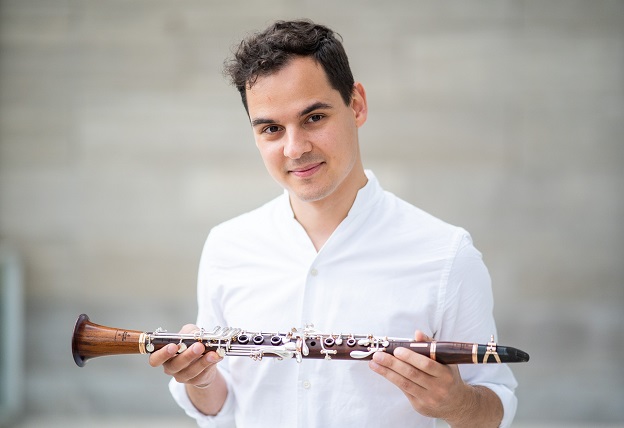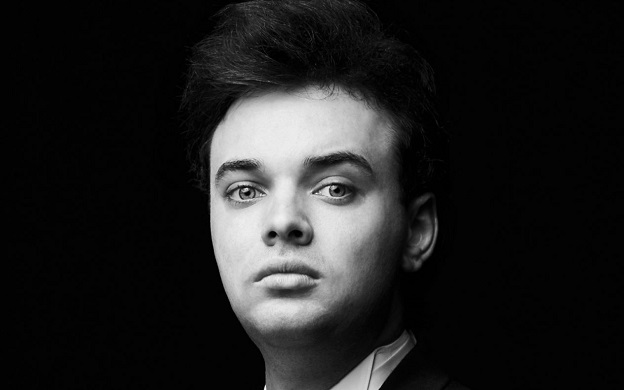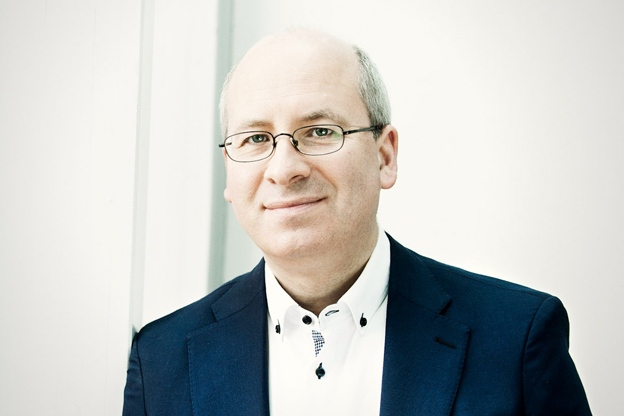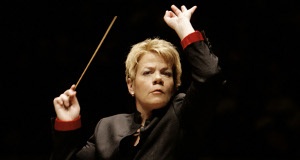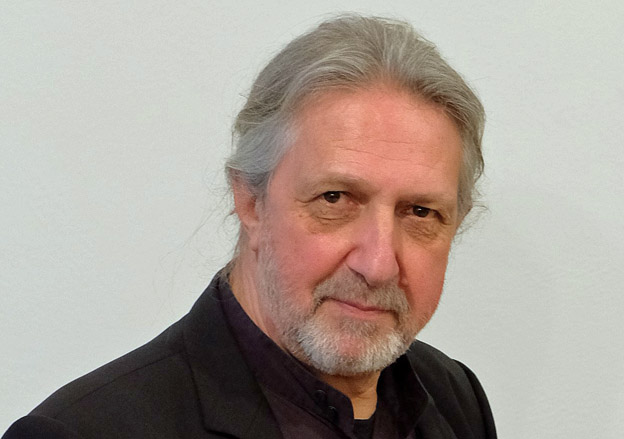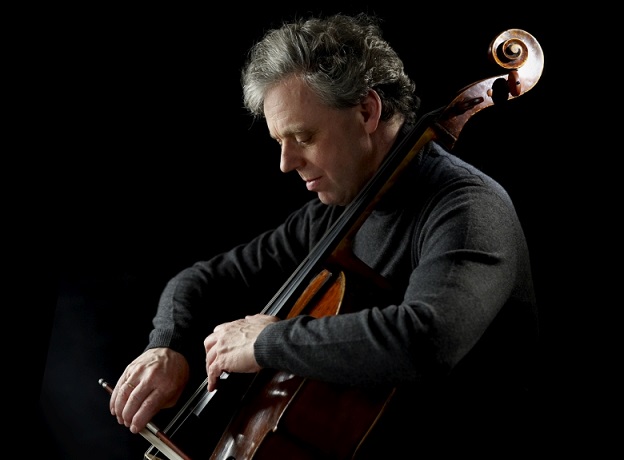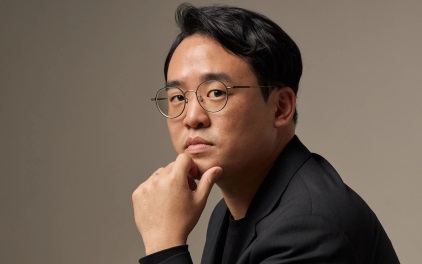Arthur Stockel, Sie wurden bereits mit 21 Jahren Soloklarinettist beim Luxembourg Philharmonic. Wie sind Sie denn eigentlich hier gelandet?
(lacht) Ich kam eigentlich eher durch Zufall zum Luxembourg Philharmonic. Ich hatte bis dahin die Position des Bass-Klarinettisten beim London Symphony Orchestra inne, wo ich auch das Vorspielen gewonnen hatte und wo ich mich auch sehr wohl fühlte. Ich hatte somit das große Glück, meine ersten Sporen als Orchestermusiker beim LSO verdienen zu können. Kurz darauf aber wurde der Posten des Soloklarinettisten beim Luxembourg Philharmonic ausgeschrieben und das interessierte mich natürlich sehr. Read More →
Giulio Caccini is not the best-known figure of his time. What led you to devote this double disc to him?
Like many singers, I discovered Giulio Caccini through his Amarilli, mia bella, found in one of the volumes of the Arie Antiche. I must have been 12, and it was love at first sight. I became interested in his work, and discovered his Nuove Musiche, his Euridice (which we recorded in 2008)… Read More →
Martin Rajna, Ihre Ernennung zum nächsten Musikdirektor des Luxembourg Philharmonic kam ja sehr unerwartet und relativ kurzfristig. Erst am 15. November 2024 dirigierten Sie ihr erstes Konzert mit dem Orchester und am 9. Januar unterschrieben Sie einen Vierjahresvertrag. Was hat sie letztendlich bewogen, den Posten anzunehmen?
Als ich zum ersten Mal auf die Bühne der Philharmonie trat, fühlte ich mich sofort daheim. Und bereits nach den ersten Minuten der ersten Probe fühlte ich mich ungemein wohl mit dem Orchester. Die Musiker des Luxembourg Philharmonic reagierten außerordentlich schnell auf meine Wünsche. Ich spürte, dass die Chemie zwischen uns stimmte. Read More →
The ICMA jury’s reasoning is based on the argument that you are one of the most inquiring pianists of our time. You have not chosen the comfortable path of well-known scores, but are a constant explorer in the archives, searching for valuable but rarely performed works. My first question is: what was the starting point of your explorations? What was the first discovery that led you down this path of discovering unknown works?
First of all, I feel very honored to receive this award. And it’s absolutely true that I have tried to follow this forgotten or unknown path. But it doesn’t mean that I don’t care about Tchaikovsky, Brahms, Bach or Beethoven. But for me it’s a very important part of my life to dedicate my time, my work and my enthusiasm to these kinds of pieces and composers. Read More →
You recorded this John Adams album in Vienna with the Vienna Radio Symphony Orchestra. When we think of Vienna, we naturally think of Beethoven or Mahler. Is there a Beethovenian or Mahlerian dimension to the music of John Adams?
The ORF Radio-Symphonieorchester Wien is an extraordinarily versatile orchestra, playing the most avant-garde new music one day and the classics the next. For me, Adams is both unique and respectful of tradition. For my first season in Baltimore, I paired living composers with Beethoven, and John was my first contact. He asked for the most minimalist of Beethoven’s symphonies: Symphony No. 7! Read More →
You were born in Tel Aviv, you grew up in Paris, and you live now in London. Does this make you a multicultural composer with a lot of roots?
I suppose so, especially if you add to that that during World War II my mother was born in Lviv (currently in Ukraine, but then Poland) and my father was born in Russia as his family were escaping the Nazi invasion of Poland. However, I think that I would make a slight distinction between the composer and the man. Read More →
Many Korean pianists study in Germany. You choose France and the Conservatoire de Paris. Why?
I wouldn’t say it was a conscious decision to avoid studying in Germany. I live in Berlin now and of course Germany is a wonderful place especially for classical musicians. I was always naturally drawn to French music and culture and I found Paris to be a wonderful city to further my studies. Especially with my teacher, Michel Beroff. Read More →
Rosch Mirkes, am 5. Januar starten die Konzerte des Festivals in Moesdorf mit einem Konzert des Ensembles Musica Gloria aus Belgien. Überhaupt ist Ihr Festival auch in diesem Jahr sehr international aufgestellt.
Ja, wir versuchen immer, erstklassige und interessante Ensembles aus ganz Europa einzuladen. Und jedes Ensemble bringt seine eigene Spielkultur mit. Historische Aufführungspraxis ist ein weites Feld und die Aufführungsstile sind oft sehr unterschiedlich. In diesem Jahr kommen die Musiker aus Belgien, Tschechien, Frankreich, Italien und England. So kommt das Publikum in den Genuss, Alte Musik aus verschiedenen Perspektiven zu erleben. Die Ausgabe 2025 wird auf jeden Fall spannend. Read More →
Julius Berger, Ihr 70. Geburtstag in diesem Jahr bedeutet ebenfalls 50 Jahre im Dienste der Musik. Zu diesem Anlass, haben Sie den Musikliebhabern zwei Geschenke gemacht: Ihr Buch ‘Ja. Cello!’ (Schott Verlag) und die CD-Einspielung ‘Warum toben Völker’ (arcantus music). Beginnen wir mit Ihrem Buch: Es stellt die zutiefst prägenden Beziehungen zu Ihren Cello-Lehrern und Mentoren ins Licht. Was hat Sie dazu inspiriert diesen Aspekt Ihrer musikalischen Entwicklung schriftlich zu betrachten?
Im Alter von 70 Jahren war es mir ein Bedürfnis Dank zu sagen. « Alles menschliche Leben ist Begegnung“ sagt Martin Buber. Die Begegnung mit meinen mittlerweile verstorbenen Lehrern ist nicht abgeschlossen, ich spüre sie jeden Tag in mir, Fragen stellend, in Frage stellend. Ich hatte großes Glück!
Des Weiteren ist dieses Buch ein Dokument gegen das Vergessen. Namen wie Kiskalt, Janigro oder Nelsova scheinen zu verblassen. Junge Studierende orientieren sich vor allem an Internetpräsenzen und wissen wenig oder gar nichts von diesen großartigen Meistern, eine erschütternde Entwicklung! Read More →
As a Korean pianist, you have no roots in Europe. Yet, as so many Koreans you deal easily with European music. What do you have to pay attention to?
Regardless of the country or continent, musicians strive to explore and understand the composer’s intentions. We study works created over several centuries and seek answers through the composer’s lifetime, written sources, and scholarly approaches. That is why many Korean and other musicians engage deeply with European music, even though we may not share its cultural roots. Read More →













